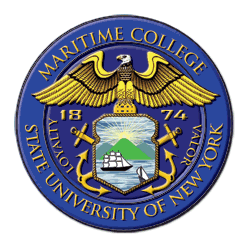Reserve Study is an analysis of a Home Owners Association’s (HOA) financial condition. The reserve study incorporates the present condition of the various components of a building and determines if the financial Reserves that are set aside are adequate for the future.
For example, as components of a building age they eventually reach a point where replacement is required. Let us use a roof as an example. An inspection is made of the present condition of the roofing system whatever type existing. There are many different types of roofs where some have a greater life expectancy than others.
This is where the inspector’s experience enters the picture. One cannot gain the experience of the remaining life expectancy of a particular roof from guesses or book knowledge only. Many factors influence how long a roofing system will last past the actual date of inspection. Factors such as the type of roof; care and maintenance since new; the height of the structure; direction where the afternoon sun strikes the roof; location adjacent to environmental conditions like the ocean and/or desert.
Not only does the inspector have to be proficient in determining the present condition of the roof, he must also look forward to the remaining life expectancy. The remaining life expectancy combined with the estimated cost to replace the roof at the end of that remaining life expectancy is entered into a Reserve Study Report containing financial data such as how much the condominium has set aside in “reserves” to pay for the roof replacement when required.
This reserve account is cash that is deposited with a banking organization that keeps the funds on deposit until the roof payment money is needed.
The Reserve Study Report can be a very important document for a potential condominium purchaser to review prior to making a purchase offer. The State of Florida has certain requirements of reserve monies that have to be kept by law. If the reserves are not enough to pay for that roof mentioned earlier then the condominium owner or prospective purchaser must pay up cash in the form of “an assessment.”
As a prospective purchaser of a condominium unit I would also be interested in knowing if the reserve funds are fully insured for loss. In today’s times, bank failures have been known to occur and the F.D.I.C. federal insurance covers only a certain amount of repayment.
Since I am not an attorney, anyone reading this section on Reserve Study should consult an attorney to verify same or not.
Without a Reserve Study, there is a great likelihood that the association is either over funding or under funding its reserves. If the association is over funding its reserve obligations, then today’s homeowners are paying for more than their fair share of the wear on the property.
On the other hand, if they are collecting too little money, a shortage will eventually result which will result in deferred maintenance and/or special assessments. This situation typically has a significant impact on the property values and personal finances. Many states have passed legislation requiring Reserve Studies because of the impacts to homeowners caused by under funding, and other states are sure to follow.
The intent of this analysis is to determine exactly what those components are (if this has not already been accomplished), to determine the current and useful remaining life of these components, and to determine the replacement cost. These results are then used to determine a funding plan which helps assure that homeowners are providing adequate money for this repair and replacement, while at the same time trying to ensure that they are not collecting excessive amounts.
A Reserve Study is composed of two parts, a site inspection and a funding analysis. If your association is considering a professionally prepared Reserve Study, you should determine if you are buying both portions. Most firms, including ourselves, who prepare these studies as a significant part of their business will provide both portions since it is not only economically advantageous to the client, but also allows greater flexibility in resolving any funding issues which may exist.
When your Association is “shopping” for a Reserve Study they should evaluate who will be performing or supervising the onsite inspection to determine if this person or persons are qualified to comment and estimate same.


